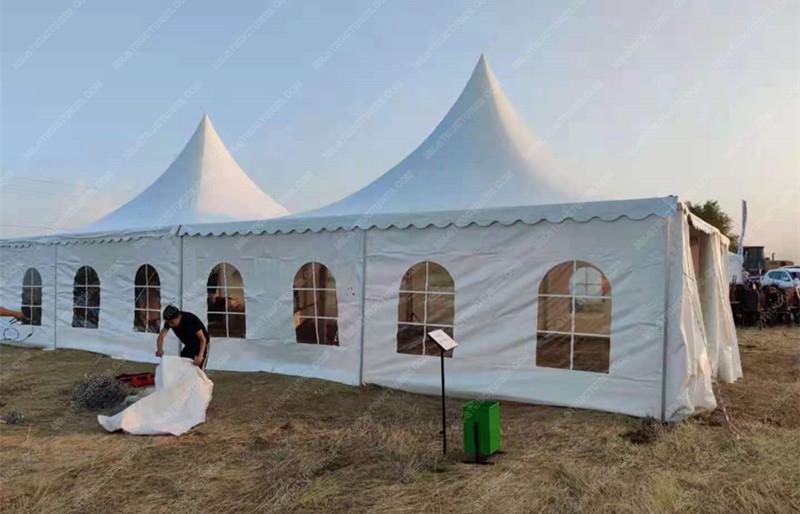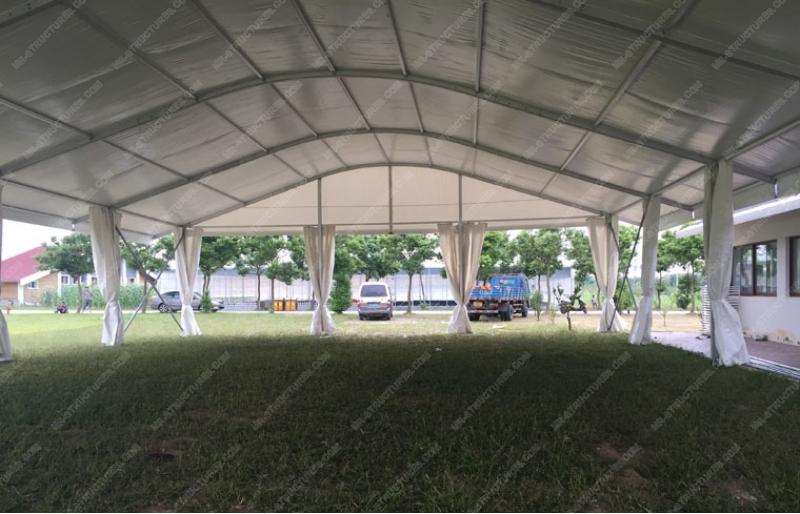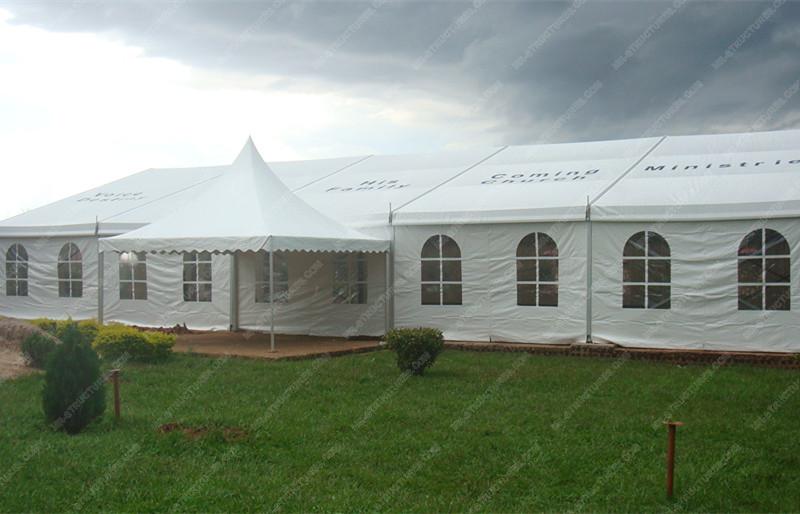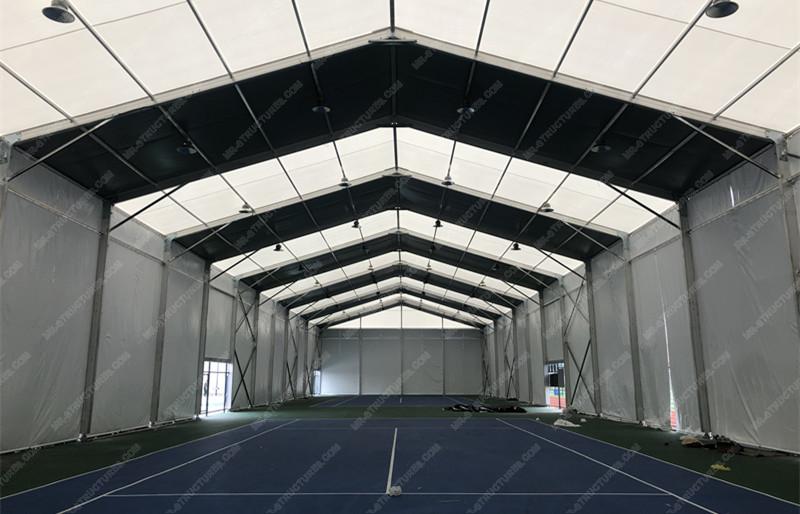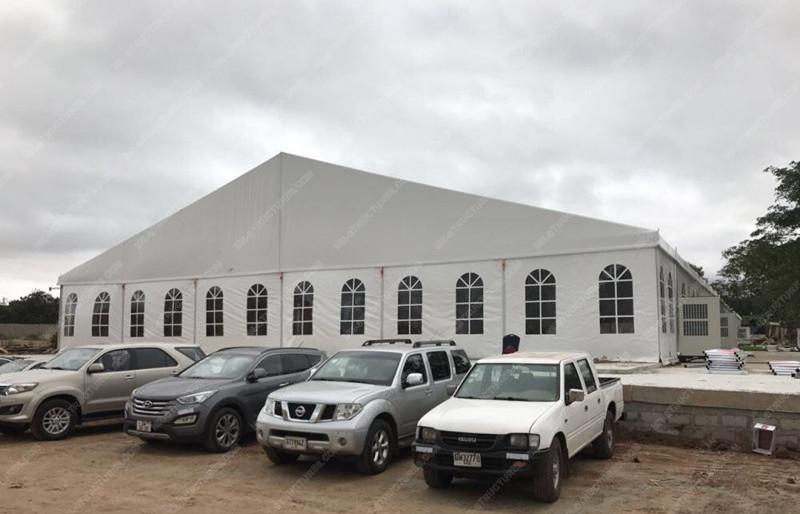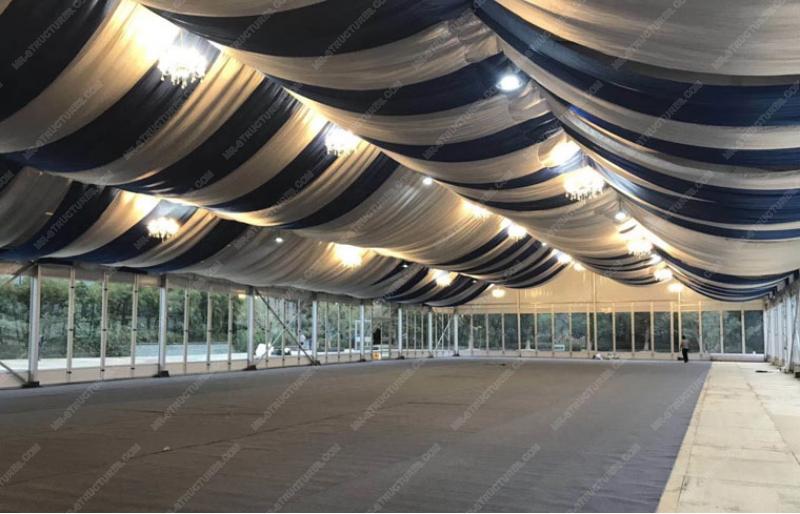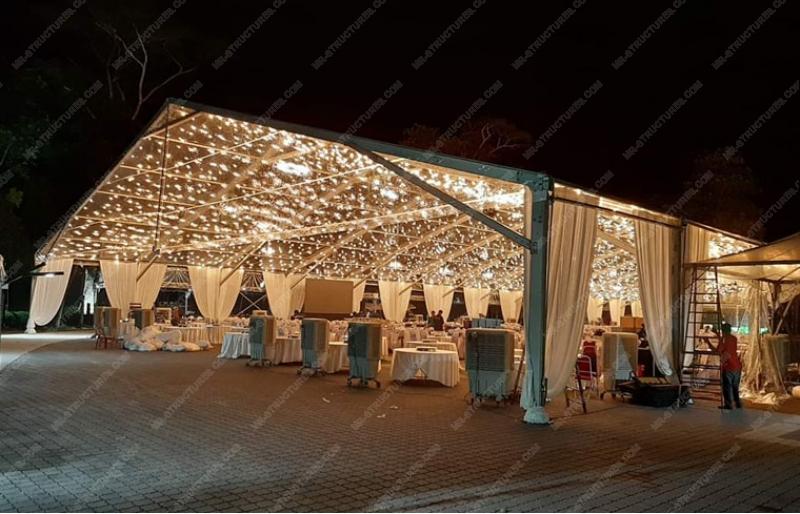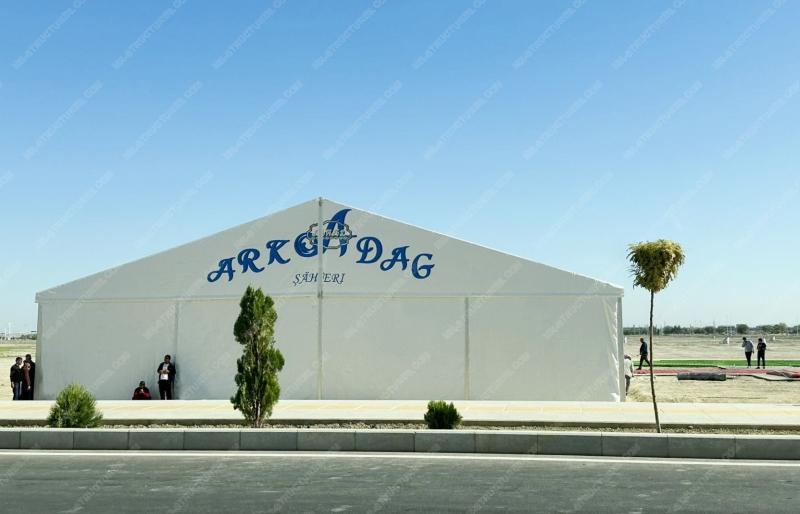The Six Key Factors for Choosing the Right Tent
 Aug 30, 2024|
Aug 30, 2024| View:149
View:149Choosing the right tent for your needs can significantly impact the success of your event or project. Whether you're planning a wedding, hosting a trade show, or setting up a temporary warehouse, selecting a tent that meets your specific requirements is crucial. Here are the six key factors to consider when choosing the perfect tent:
1、Purpose
The first step in choosing the right tent is to clearly define its purpose. Are you looking for a tent for a wedding, an exhibition, a sports event, or storage? Each purpose comes with its own set of requirements:
Wedding and Celebration: For these events, aesthetics are important. Consider a transparent tent or arcum tent to create a visually appealing atmosphere.
Exhibition and Trade Show: Opt for a clear span tent that offers a large, open interior with no internal poles, allowing for flexible layout options and maximum usable space.
Sports Event: Choose a large tent that provides ample space and can accommodate lighting, ventilation, and flooring, making it ideal for sports activities.
Storage and Warehousing: Select a robust and durable aluminum frame tent that can withstand various weather conditions and offers protection for your goods.
2、Size
Determining the right size for your tent is critical and depends on several factors:
Event Capacity: Consider the number of guests or the amount of space needed for equipment and displays. For seated events, ensure sufficient space for tables, chairs, and aisles.
Site Constraints: Measure the available space at your site, considering any obstacles like trees, buildings, or uneven ground. This will help you choose a tent, such as an A-shaped tent or outdoor tent, that fits the location perfectly.
Additional Space: Remember to factor in extra space for areas such as catering, backstage, or storage, depending on the nature of your event.
3、Material
The tent material should be chosen based on the environment and the specific needs of your event:
Frame Material: An aluminum frame tent is lightweight and rust-resistant, ideal for temporary or mobile setups. Steel is stronger and more suitable for long-term installations.
Fabric Material: PVC-coated polyester is a popular choice due to its durability, water resistance, and fire-retardant properties. For lighter use, polyethylene (PE) can be a cost-effective option, but it may not provide the same protection.
Special Coatings: Some tents come with additional coatings for UV protection, mold resistance, or insulation, which can be important depending on the climate and usage.
4、Design and Style
The design and style of the tent should align with the event's theme and desired ambiance:
Aesthetic Appeal: For events like weddings or high-profile corporate functions, consider a pagoda tent or arcum tent with a unique shape and high ceiling to add elegance and sophistication.
Customization Options: Look for a tent that allows customization in terms of color, window style, and entry points to match your event's specific needs and branding.
Accessories and Enhancements: Enhance the tent with additional features like drapery, lighting, and flooring to create a more comfortable and visually appealing environment.
5、Ease of Installation and Mobility
Consider how easy it is to set up, take down, and transport the tent:
Installation Complexity: Some tents, like an outdoor tent or A-shaped tent, are designed for quick setup and require minimal tools, making them ideal for events that need to be assembled and disassembled quickly. Others, like a clear span tent, may require professional installation, especially if they have a more complex design.
Portability: For multiple locations, choose a tent design that is easy to transport and store. Lightweight materials and modular designs can be beneficial for frequent moves.
6、Budget
Your budget will play a significant role in determining which tent to choose:
Cost-Effectiveness of Purchasing: Purchasing a tent is a more economical choice in the long run, especially for those who frequently host events or need a reliable structure for extended use.
Long-term Value: Opting for a high-quality tent can have a higher upfront cost, but it will be more cost-effective in the long run due to its durability and reduced need for repairs or replacements.
Additional Costs: When budgeting, remember to account for other costs, such as delivery, installation, accessories, and any required permits. These considerations will help you better plan for a successful event.
Choosing the right tent involves considering various factors, from purpose and size to material, design, installation, and budget. By taking these six key factors into account, you can select a tent that perfectly fits your needs and ensures the success of your event.
- 1.Industrial storage tents solve many problems for enterprises2022-05-30
- 2.Why is everyone using Event Tent?2022-08-17
- 3.Why choose the transparent tent?2022-09-01
- 4.The advantages and uses of Church Tent2022-09-15
- 5.Advantages of Exhibition Tent2022-09-28
- 6.Large Clear Span Tent - Your Best Choice For Outdoor Events2023-10-31
- 7.How to choose the suitable tent for your event?2024-05-24
- 8.Sports Arena Tent: Summer Cool Sports Space2024-07-09






